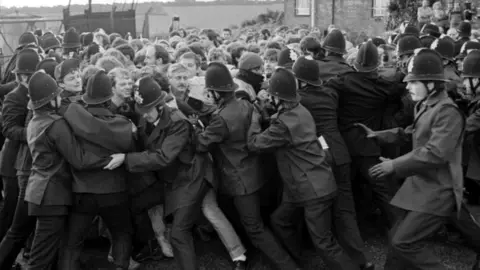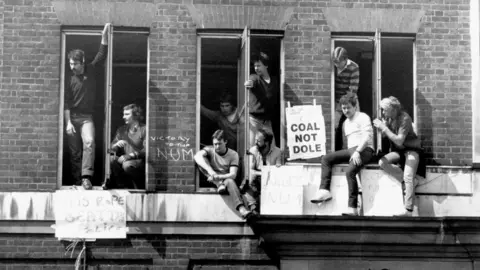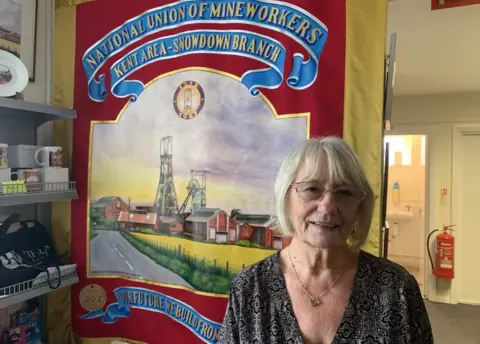Kent's mining community recall strike 40 years on
 PA Media
PA MediaIn 1984 Kent miners joined a national strike that was to become the biggest industrial dispute in post-war Britain.
Three Kent pits - Snowdown, Tilmanstone and Betteshanger - were in operation in 1984 when the 54-week dispute began.
Protests were held against plans by the National Coal Board, supported by Prime Minister Margaret Thatcher, to shut 20 "unprofitable" pits nationwide.
The National Union of Miners' strike saw miners and police clash on the picket lines across the country.
Eventually the Kent miners returned to work but the pits were destined for closure. Betteshanger was the last to close in Kent in 1989.
Shaun Parry started working at Snowdown Colliery near Aylesham when he was just 16 years old.
He said: "It was 940m deep, and it was very, very hot. I think the nickname was Dante's inferno. I loved it."
 PA Media
PA MediaMr Parry said he had been detained by police during the strike.
"I hadn't done anything. I was taken to the van and then they cable-tied you to a wire inside the van," he said.
"I was frightened. I was really frightened."
Wives' support
Kay Sutcliffe was married to miner Philip Sutcliffe and they lived in the pit village of Aylesham.
She said no-one in the village broke the strike and everyone in Aylesham was "organised and united".
For Mrs Sutcliffe, the strikes were a battle to save not just jobs, but a way of life.
 BBC/Liberty Phelan
BBC/Liberty PhelanAfter seeing TV reports of miners' wives in Nottinghamshire calling for a return to work, women in Kent, led by Mrs Sutcliffe and others, travelled north to boost support for the stoppage.
She penned poems which galvanized dozens of women to march in protest, while her speeches were heard by thousands.
Mrs Sutcliffe said: "I think we were the first women support group that actually publicly were noticed for doing an active thing like that.
"'How is it gonna affect the miners in our community? How is it gonna affect their families if they can't get a job anywhere?' That's the kind of thing I was talking about," she told BBC Politics South East.
"And how much it meant to our communities to keep the pits going, and not just to our communities, but to the whole country."

Follow BBC South East on Facebook, on X, and on Instagram. Send your story ideas to [email protected] or WhatsApp us on 08081 002250.
